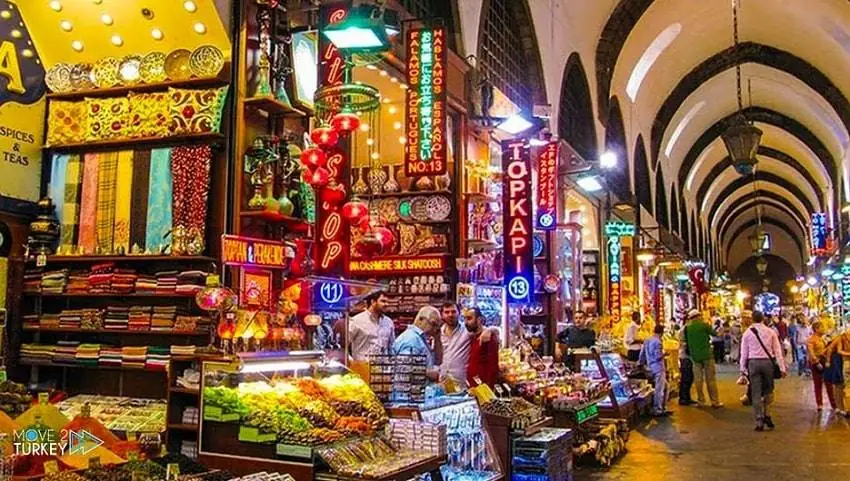The Egyptian Bazaar, also known as the Spice Bazaar, is one of Istanbul’s most vibrant and historically rich markets. Located in the Eminönü district, this L-shaped market is a sensory delight, offering a wide array of spices, sweets, nuts, and other traditional Turkish goods. Understanding the best time to visit the Egyptian Bazaar can enhance your experience by helping you avoid crowds and enjoy the market to its fullest.
History of the Egyptian Bazaar
The Egyptian Bazaar, built in 1664, was initially financed by taxes levied on Egyptian imports, hence its name. It served as a crucial trade center on the Silk Road, where spices from India and Southeast Asia were traded. The bazaar’s revenues supported the New Mosque (Yeni Camii) and its charitable activities, including a school, hospital, and baths.
Optimal Visiting Times

To make the most of your visit to the Egyptian Bazaar, consider these optimal times:
Early Morning Visits (Weekdays)
Best Time: 9:00 AM – 11:00 AM
Why: Arriving early on weekdays allows you to explore the bazaar with fewer crowds. This is the perfect time to engage with vendors, sample products, and take in the vibrant atmosphere without the hustle and bustle.
Late Afternoon Visits
Best Time: 4:00 PM – 6:00 PM
Why: Another less crowded period is late afternoon. As tourists and locals start to leave, you can navigate the market more comfortably and perhaps catch some end-of-day bargains.
Seasonal Considerations
Spring (April to June)
Advantages: Pleasant weather and moderate crowds make spring an ideal time to visit. The bazaar’s colors and scents are particularly vibrant during this season.
Fall (September to November)
Advantages: Similar to spring, fall offers mild weather and fewer tourists, providing a comfortable and enjoyable shopping experience.
What to Buy
The Egyptian Bazaar is renowned for its diverse offerings. Here are some must-buy items:
- Spices and Herbs: From common spices like cumin and paprika to exotic ones like saffron and sumac.
- Turkish Delight (Lokum): A variety of flavors, often beautifully packaged, making them great souvenirs.
- Nuts and Dried Fruits: Fresh and high-quality, including dried figs, apricots, and a range of nuts.
- Turkish Tea and Coffee: Traditional teas and coffee, with some shops offering freshly roasted coffee beans.
- Handmade Goods: Ceramics, textiles, and other handcrafted items that showcase Turkish artistry.
Tips for Visiting
Bargaining: Feel free to haggle prices. Vendors expect it and you can often secure a better deal.
Local Markets: Explore nearby markets such as Rüstem Paşa and Tahtakale for additional bargains and a more local shopping experience.
Stay Hydrated and Comfortable: Wear comfortable shoes and stay hydrated, especially during warmer months.
The best time to visit the Egyptian Bazaar depends on your preference for crowd size and weather. Elevate your experience of Egyptian Bazaar with our top-rated tour offering. Early mornings and late afternoons on weekdays are generally the most pleasant times to explore. Whether you’re shopping for spices, sweets, or handmade crafts, your visit to this historical market will undoubtedly be a memorable experience.

